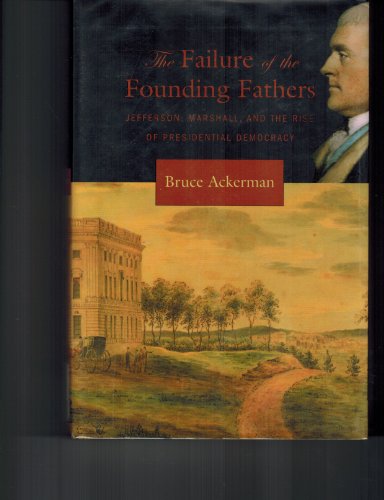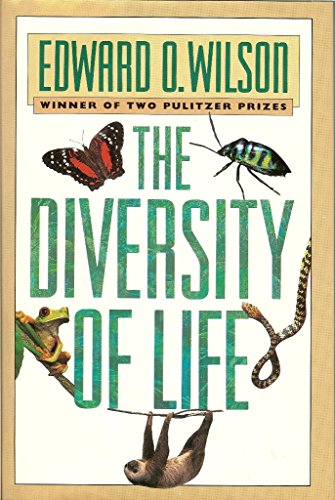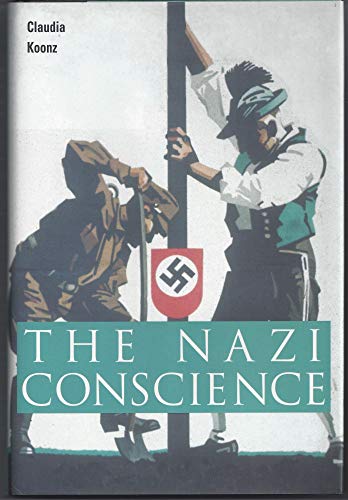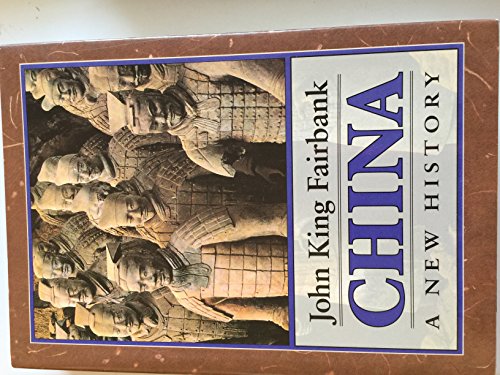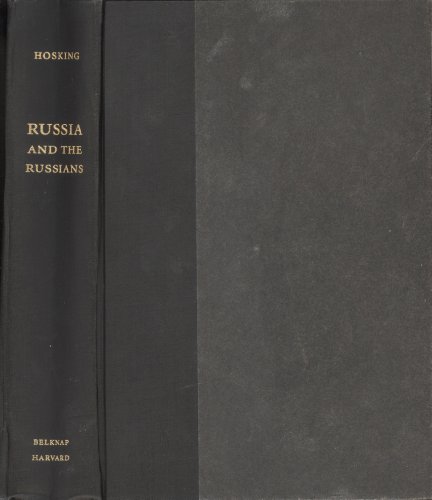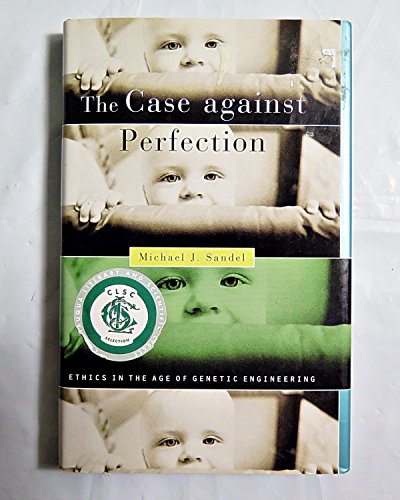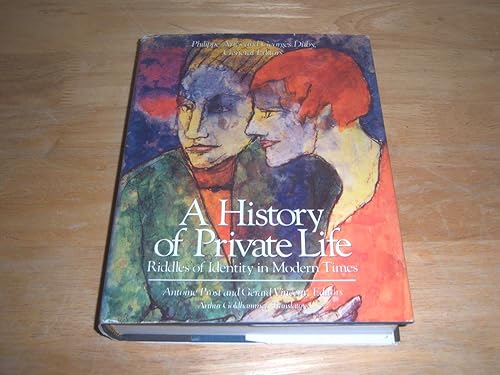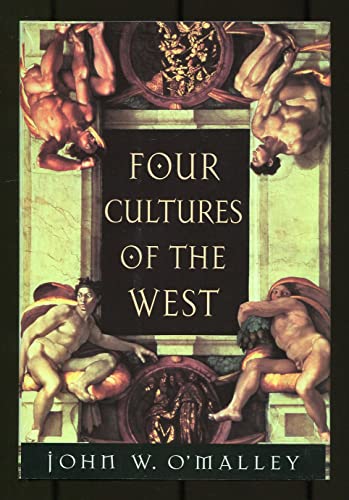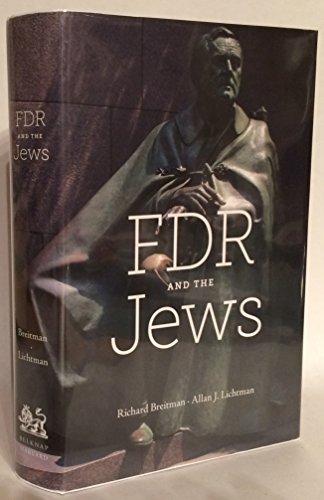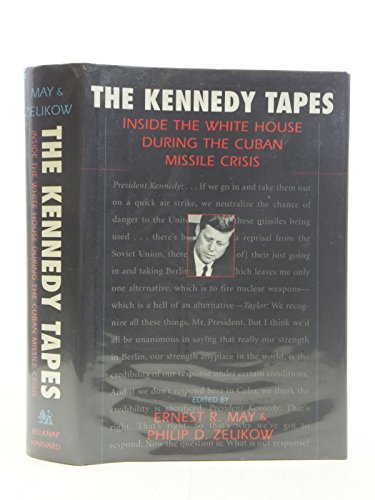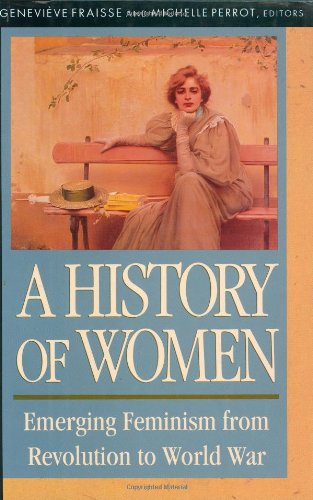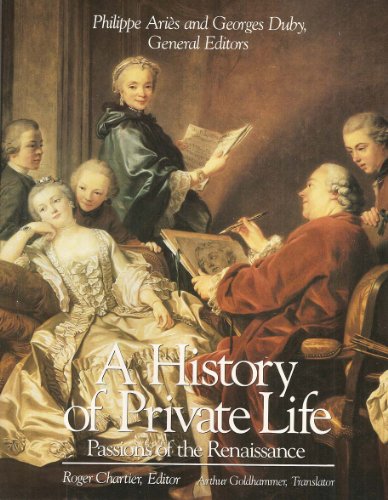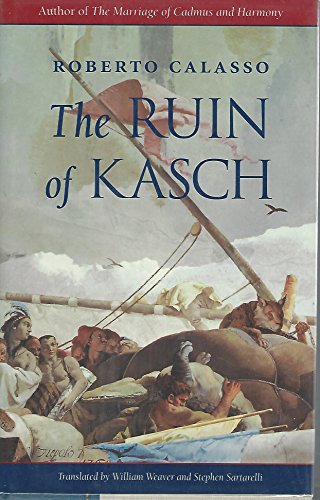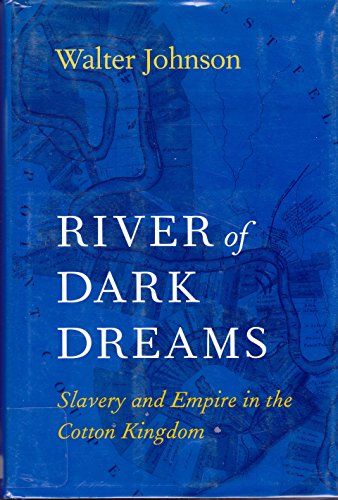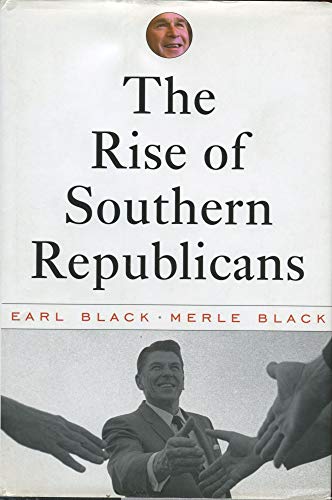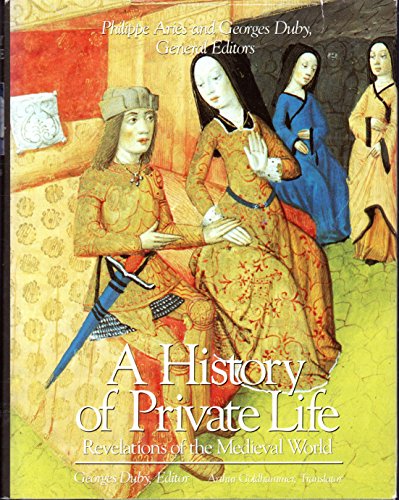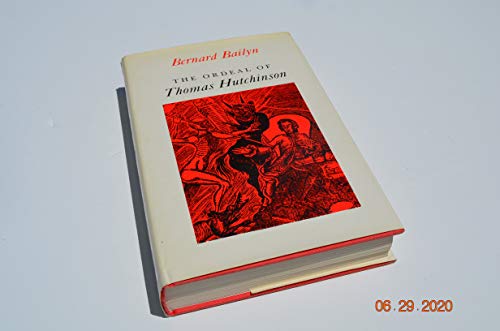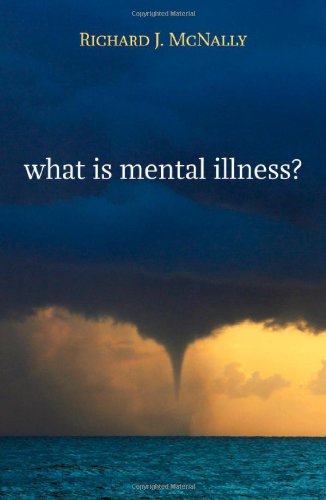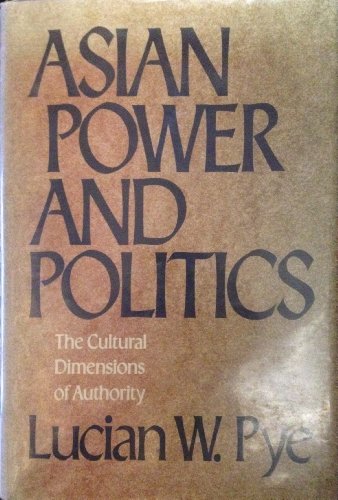brand belknap press (501 results)
Product Type
- All Product Types
- Books (501)
- Magazines & Periodicals
- Comics
- Sheet Music
- Art, Prints & Posters
- Photographs
- Maps
- Manuscripts & Paper Collectibles
Condition
Binding
Collectible Attributes
- First Edition (68)
- Signed
- Dust Jacket
- Seller-Supplied Images
- Not Print on Demand (501)
Free Shipping
Seller Location
Seller Rating
-
The Failure of the Founding Fathers: Jefferson, Marshall, and the Rise of Presidential Democracy
Published by Brand: Belknap Press of Harvard University Press, 2005
ISBN 10: 0674018664ISBN 13: 9780674018662
Seller: Ergodebooks, Houston, TX, U.S.A.
Book First Edition
Hardcover. Condition: Good. First Edition. The ink was barely dry on the Constitution when it was almost destroyed by the rise of political parties in the United States. As Bruce Ackerman shows, the Framers had not anticipated the two-party system, and when Republicans battled Federalists for the presidency in 1800, the rules laid down by the Constitution exacerbated the crisis. With Republican militias preparing to march on Washington, the House of Representatives deadlocked between Thomas Jefferson and Aaron Burr. Based on seven years of archival research, the book describes previously unknown aspects of the electoral college crisis. Ackerman shows how Thomas Jefferson counted his Federalist rivals out of the House runoff, and how the Federalists threatened to place John Marshall in the presidential chair. Nevertheless, the Constitution managed to survive through acts of statesmanship and luck.Despite the intentions of the Framers, the presidency had become a plebiscitarian office. Thomas Jefferson gained office as the People's choice and acted vigorously to fulfill his popular mandate. This transformation of the presidency serves as the basis for a new look at Marbury v. Madison, the case that first asserted the Supreme Court's power of judicial review. Ackerman shows that Marbury is best seen in combination with another case, Stuart v. Laird, as part of a retreat by the Court in the face of the plebiscitarian presidency. This "switch in time" proved crucial to the Court's survival, allowing it to integrate Federalist and Republican themes into the living Constitution of the early republic.Ackerman presents a revised understanding of the early days of two great institutions that continue to have a major impact on American history: the plebiscitarian presidency and a Supreme Court that struggles to put the presidency's claims of a popular mandate into constitutional perspective.
More buying choices from other sellers on AbeBooks
New offers from US$ 17.91
Used offers from US$ 9.22
Also find Hardcover First Edition
-
Jihad: The Trail of Political Islam
Published by Brand: Belknap Press, 2002
ISBN 10: 0674008774ISBN 13: 9780674008779
Seller: Ergodebooks, Houston, TX, U.S.A.
Book First Edition
Hardcover. Condition: Good. First Edition. The late twentieth century has witnessed the emergence of an unexpected and extraordinary phenomenon: Islamist political movements. Beginning in the early 1970s, militants revolted against the regimes in power throughout the Muslim world and exacerbated political conflicts everywhere. Their jihad, or "Holy Struggle," aimed to establish a global Islamic state based solely on a strict interpretation of the Koran. Religious ideology proved a cohesive force, gathering followers ranging from students and the young urban poor to middle-class professionals.After an initial triumph with the Islamic revolution in Iran, the movement waged jihad against the USSR in Afghanistan, proclaiming for the first time a doctrine of extreme violence. By the end of the 1990s, the failure to seize political power elsewhere led to a split: movement moderates developed new concepts of "Muslim democracy" while extremists resorted to large-scale terrorist attacks around the world.Jihad is the first extensive, in-depth attempt to follow the history and geography of this disturbing political-religious phenomenon. Fluent in Arabic, Kepel has traveled throughout the Muslim world gathering documents, interviews, and archival materials inaccessible to most scholars, in order to give us a comprehensive understanding of the scope of Islamist movements, their past, and their present. As we confront the threat of terrorism to our lives and liberties, Gilles Kepel helps us make sense of the ominous reality of jihad today.
More buying choices from other sellers on AbeBooks
New offers from US$ 30.22
Used offers from US$ 9.53
Also find Hardcover First Edition
-
Women on the Margins: Three Seventeenth-Century Lives
Published by Brand: Belknap Press, 1997
ISBN 10: 0674955218ISBN 13: 9780674955219
Seller: Ergodebooks, Houston, TX, U.S.A.
Book
Softcover. Condition: Good. Reprint. As she did in The Return of Martin Guerre, Natalie Zemon Davis here retrieves individual lives from historical obscurity to give us a window onto the early modern world. As women living in the seventeenth century, Glikl bas Judah Leib, Marie de lIncarnation, and Maria Sibylla Merian, equally remarkable though very different, were not queens or noblewomen, their every move publicly noted. Rather, they were living on the margins in seventeenth-century Europe, North America, and South America. Yet these women-one Jewish, one Catholic, one Protestant-left behind memoirs and writings that make for a spellbinding tale and that, in Davis deft narrative, tell us more about the life of early modern Europe than many an official history.All these women were originally city folk. Glikl bas Judah Leib was a merchant of Hamburg and Metz whose Yiddish autobiography blends folktales with anecdotes about her two marriages, her twelve children, and her business. Marie de lIncarnation, widowed young, became a mystic visionary among the Ursuline sisters and cofounder of the first Christian school for Amerindian women in North America. Her letters are a rich source of information about the Huron, Algonquin, Montagnais, and Iroquois peoples of Quebec. Maria Sibylla Merian, a German painter and naturalist, produced an innovative work on tropical insects based on lore she gathered from the Carib, Arawak, and African women of Suriname. Along the way she abandoned her husband to join a radical Protestant sect in the Netherlands.Drawing on Glikls memoirs, Maries autobiography and correspondence, and Marias writings on entomology and botany, Davis brings these women to vibrant life. She reconstructs the divergent paths their stories took, and at the same time shows us each amid the common challenges and influences of the time-childrearing, religion, an outpouring of vernacular literature-and in relation to men. The resulting triptych suggests the range of experience, self-consciousness, and expression possible in seventeenth-century Europe and its outposts. It also shows how persons removed from the centers of power and learning ventured in novel directions, modifying in their own way Europes troubled and ambivalent relations with other marginal peoples.
More buying choices from other sellers on AbeBooks
New offers from US$ 31.53
Used offers from US$ 9.62
Also find Softcover
-
Nero
Published by Brand: Belknap Press, 2003
ISBN 10: 0674011929ISBN 13: 9780674011922
Seller: Ergodebooks, Houston, TX, U.S.A.
Book
Hardcover. Condition: Good. The Roman emperor Nero is remembered by history as the vain and immoral monster who fiddled while Rome burned. Edward Champlin reinterprets Nero's enormities on their own terms, as the self-conscious performances of an imperial actor with a formidable grasp of Roman history and mythology and a canny sense of his audience.Nero murdered his younger brother and rival to the throne, probably at his mother's prompting. He then murdered his mother, with whom he may have slept. He killed his pregnant wife in a fit of rage, then castrated and married a young freedman because he resembled her. He mounted the public stage to act a hero driven mad or a woman giving birth, and raced a ten-horse chariot in the Olympic games. He probably instigated the burning of Rome, for which he then ordered the spectacular punishment of Christians, many of whom were burned as human torches to light up his gardens at night. Without seeking to rehabilitate the historical monster, Champlin renders Nero more vividly intelligible by illuminating the motives behind his theatrical gestures, and revealing the artist who thought of himself as a heroic figure.Nero is a brilliant reconception of a historical account that extends back to Tacitus, Suetonius, and Cassius Dio. The effortless style and artful construction of the book will engage any reader drawn to its intrinsically fascinating subject.
-
The Diversity of Life (Questions of Science)
Published by Brand: Belknap Press, 1992
ISBN 10: 0674212983ISBN 13: 9780674212985
Seller: Ergodebooks, Houston, TX, U.S.A.
Book
Hardcover. Condition: Good. View a collection of videos on Professor Wilson entitled "On the Relation of Science and the Humanities""In the Amazon Basin the greatest violence sometimes begins as a flicker of light beyond the horizon. There in the perfect bowl of the night sky, untouched by light from any human source, a thunderstorm sends its premonitory signal and begins a slow journey to the observer, who thinks: the world is about to change." Watching from the edge of the Brazilian rain forest, witness to the sort of violence nature visits upon its creatures, Edward O. Wilson reflects on the crucible of evolution, and so begins his remarkable account of how the living world became diverse and how humans are destroying that diversity.Wilson, internationally regarded as the dean of biodiversity studies, conducts us on a tour through time, traces the processes that create new species in bursts of adaptive radiation, and points out the cataclysmic events that have disrupted evolution and diminished global diversity over the past 600 million years. The five enormous natural blows to the planet (such as meteorite strikes and climatic changes) required 10 to 100 million years of evolutionary repair. The sixth great spasm of extinction on earth--caused this time entirely by humans--may be the one that breaks the crucible of life. Wilson identifies this crisis in countless ecosystems around the globe: coral reefs, grasslands, rain forests, and other natural habitats. Drawing on a variety of examples such as the decline of bird populations in the United States, the extinction of many species of freshwater fish in Africa and Asia, and the rapid disappearance of flora and fauna as the rain forests are cut down, he poignantly describes the death throes of the living world's diversity--projected to decline as much as 20 percent by the year 2020.All evidence marshaled here resonates through Wilson's tightly reasoned call for a spirit of stewardship over the world's biological wealth. He makes a plea for specific actions that will enhance rather than diminish not just diversity but the quality of life on earth. Cutting through the tangle of environmental issues that often obscure the real concern, Wilson maintains that the era of confrontation between forces for the preservation of nature and those for economic development is over; he convincingly drives home the point that both aims can, and must, be integrated. Unparalleled in its range and depth, Wilson's masterwork is essential reading for those who care about preserving the world biological variety and ensuring our planet's health.
More buying choices from other sellers on AbeBooks
New offers from US$ 20.75
Used offers from US$ 9.68
-
The Nazi Conscience
Published by Brand: Belknap Press, 2003
ISBN 10: 0674011724ISBN 13: 9780674011724
Seller: Ergodebooks, Houston, TX, U.S.A.
Book
Hardcover. Condition: Good. The Nazi conscience is not an oxymoron. In fact, the perpetrators of genocide had a powerful sense of right and wrong, based on civic values that exalted the moral righteousness of the ethnic community and denounced outsiders.Claudia Koonz's latest work reveals how racial popularizers developed the infrastructure and rationale for genocide during the so-called normal years before World War II. Her careful reading of the voluminous Nazi writings on race traces the transformation of longtime Nazis' vulgar anti-Semitism into a racial ideology that seemed credible to the vast majority of ordinary Germans who never joined the Nazi Party. Challenging conventional assumptions about Hitler, Koonz locates the source of his charisma not in his summons to hate, but in his appeal to the collective virtue of his people, the Volk.From 1933 to 1939, Nazi public culture was saturated with a blend of racial fear and ethnic pride that Koonz calls ethnic fundamentalism. Ordinary Germans were prepared for wartime atrocities by racial concepts widely disseminated in media not perceived as political: academic research, documentary films, mass-market magazines, racial hygiene and art exhibits, slide lectures, textbooks, and humor. By showing how Germans learned to countenance the everyday persecution of fellow citizens labeled as alien, Koonz makes a major contribution to our understanding of the Holocaust.The Nazi Conscience chronicles the chilling saga of a modern state so powerful that it extinguished neighborliness, respect, and, ultimately, compassion for all those banished from the ethnic majority.
More buying choices from other sellers on AbeBooks
New offers from US$ 30.36
Used offers from US$ 9.94
Also find Hardcover
-
Jefferson and the Indians: The Tragic Fate of the First Americans
Published by Brand: Belknap Press, 1999
ISBN 10: 0674000668ISBN 13: 9780674000667
Seller: Ergodebooks, Houston, TX, U.S.A.
Book First Edition
Hardcover. Condition: Good. First Edition. In Thomas Jefferson's time, white Americans were bedeviled by a moral dilemma unyielding to reason and sentiment: what to do about the presence of black slaves and free Indians. That Jefferson himself was caught between his own soaring rhetoric and private behavior toward blacks has long been known. But the tortured duality of his attitude toward Indians is only now being unearthed.In this landmark history, Anthony Wallace takes us on a tour of discovery to unexplored regions of Jefferson's mind. There, the bookish Enlightenment scholar--collector of Indian vocabularies, excavator of ancient burial mounds, chronicler of the eloquence of America's native peoples, and mourner of their tragic fate--sits uncomfortably close to Jefferson the imperialist and architect of Indian removal. Impelled by the necessity of expanding his agrarian republic, he became adept at putting a philosophical gloss on his policy of encroachment, threats of war, and forced land cessions--a policy that led, eventually, to cultural genocide.In this compelling narrative, we see how Jefferson's close relationships with frontier fighters and Indian agents, land speculators and intrepid explorers, European travelers, missionary scholars, and the chiefs of many Indian nations all complicated his views of the rights and claims of the first Americans. Lavishly illustrated with scenes and portraits from the period, Jefferson and the Indians adds a troubled dimension to one of the most enigmatic figures of American history, and to one of its most shameful legacies.
More buying choices from other sellers on AbeBooks
New offers from US$ 29.14
Used offers from US$ 9.99
Also find Hardcover First Edition
-
China: A New History
Published by Brand: Belknap Press, 1992
ISBN 10: 0674116704ISBN 13: 9780674116702
Seller: Ergodebooks, Houston, TX, U.S.A.
Book First Edition
Hardcover. Condition: Good. First Edition. There is a newer edition of this book.
More buying choices from other sellers on AbeBooks
New offers from US$ 30.32
Used offers from US$ 10.05
Also find Hardcover First Edition
-
Russia and the Russians: A History
Published by Brand: Belknap Press of Harvard University Press, 2001
ISBN 10: 0674004736ISBN 13: 9780674004733
Seller: Ergodebooks, Houston, TX, U.S.A.
Book First Edition
Hardcover. Condition: Good. First Edition. From the Carpathians in the west to the Greater Khingan range in the east, a huge, flat expanse dominates the Eurasian continent. Here, over more than a thousand years, the history and destiny of Russia have unfolded. In a sweeping narrative, one of the English-speaking world's leading historians of Russia follows this story from the first emergence of the Slavs in the historical record in the sixth century C.E. to the Russians' persistent appearances in today's headlines. Hosking's is a monumental story of competing legacies, of an enormous power uneasily balanced between the ideas and realities of Asian empire, European culture, and Byzantine religion; of a constantly shifting identity, from Kievan Rus to Muscovy to Russian Empire to Soviet Union to Russian Federation, and of Tsars and leaders struggling to articulate that identity over the centuries.With particular attention to non-Russian regions and ethnic groups and to Russia's relations with neighboring polities, Hosking lays out the links between political, economic, social, and cultural phenomena that have made Russia what it is--a world at once familiar and mysterious to Western observers. In a clear and engaging style, he conducts us through the Mongol invasions, the rise of autocracy, the reigns of Ivan the Terrible and Peter the Great, the battle against Napoleon, the emancipation of the serfs, the Crimean War, the Bolshevik Revolution, Stalin's reign of terror, the two World Wars, the end of the USSR, to today's war against Chechnya. Hosking's history is shot through with the understanding that becoming an empire has prevented Russia from becoming a nation and has perpetuated archaic personal forms of power. This book is the most penetrating and comprehensive account yet of what such a legacy has meant--to Russia, and to the world.
More buying choices from other sellers on AbeBooks
New offers from US$ 38.84
Used offers from US$ 10.09
Also find Hardcover First Edition
-
Women on the Margins: Three Seventeenth-Century Lives
Published by Brand: Belknap Press, 1995
ISBN 10: 067495520XISBN 13: 9780674955202
Seller: Ergodebooks, Houston, TX, U.S.A.
Book
Hardcover. Condition: Good. As she did with Martin Guerre, Natalie Zemon Davis here retrieves individual lives from historical obscurity to give us a window onto the early modern world. As women living in the seventeenth century, Glikl bas Judah Leib, Marie de l'Incarnation, and Maria Sibylla Merian, equally remarkable though very different, were not queens or noblewomen, their every move publicly noted. Rather, they were living "on the margins" in seventeenth-century Europe, North America, and South America. Yet these women--one Jewish, one Catholic, one Protestant--left behind memoirs and writings that make for a spellbinding tale and that, in Davis' deft narrative, tell us more about the life of early modern Europe than many an official history.All these women were originally city folk. Glikl bas Judah Leib was a merchant of Hamburg and Metz whose Yiddish autobiography blends folktales with anecdotes about her two marriages, her twelve children, and her business. Marie de l'Incarnation, widowed young, became a mystic visionary among the Ursuline sisters and cofounder of the first Christian school for Amerindian women in North America. Her letters are a rich source of information about the Huron, Algonquin, Montagnais, and Iroquois peoples of Quebec. Maria Sibylla Merian, a German painter and naturalist, produced an innovative work on tropical insects based on lore she gathered from the Carib, Arawak, and African women of Suriname. Along the way she abandoned her husband to join a radical Protestant sect in the Netherlands. Drawing on Glikl's memoirs, Marie's autobiography and correspondence, and Maria's writings on entomology and botany, Davis brings these women to vibrant life. She reconstructs the divergent paths their stories took, and at the same time shows us each amid the common challenges and influences of the time--childrearing, religion, an outpouring of vernacular literature--and in relation to men.The resulting triptych suggests the range of experience, self-consciousness, and expression possible in seventeenth-century Europe and its outposts. It also shows how persons removed from the centers of power and learning ventured in novel directions, modifying in their own way Europe's troubled and ambivalent relations with other "marginal" peoples.
More buying choices from other sellers on AbeBooks
New offers from US$ 39.89
Used offers from US$ 10.09
Also find Hardcover
-
The Case against Perfection: Ethics in the Age of Genetic Engineering
Published by Brand: Belknap Press of Harvard University Press, 2007
ISBN 10: 067401927XISBN 13: 9780674019270
Seller: Ergodebooks, Houston, TX, U.S.A.
Book
Hardcover. Condition: Good. 1. Listen to a short interview with Michael SandelHost: Chris Gondek Producer: Heron & CraneBreakthroughs in genetics present us with a promise and a predicament. The promise is that we will soon be able to treat and prevent a host of debilitating diseases. The predicament is that our newfound genetic knowledge may enable us to manipulate our nature--to enhance our genetic traits and those of our children. Although most people find at least some forms of genetic engineering disquieting, it is not easy to articulate why. What is wrong with re-engineering our nature?The Case against Perfection explores these and other moral quandaries connected with the quest to perfect ourselves and our children. Michael Sandel argues that the pursuit of perfection is flawed for reasons that go beyond safety and fairness. The drive to enhance human nature through genetic technologies is objectionable because it represents a bid for mastery and dominion that fails to appreciate the gifted character of human powers and achievements. Carrying us beyond familiar terms of political discourse, this book contends that the genetic revolution will change the way philosophers discuss ethics and will force spiritual questions back onto the political agenda.In order to grapple with the ethics of enhancement, we need to confront questions largely lost from view in the modern world. Since these questions verge on theology, modern philosophers and political theorists tend to shrink from them. But our new powers of biotechnology make these questions unavoidable. Addressing them is the task of this book, by one of America's preeminent moral and political thinkers.
-
History of Private Life, Volume V: Riddles of Identity in Modern Times
Published by Brand: Belknap Press, 1991
ISBN 10: 067439979XISBN 13: 9780674399792
Seller: Ergodebooks, Houston, TX, U.S.A.
Book
Hardcover. Condition: Good. The final volume in the award-winning series charts the remarkable inner history of our times from the tumult of World War I to the present day, when personal identity was released from its moorings in gender, family, social class, religion, politics, and nationality. "A fascinating glimpse into the distant and exotic past."--Los Angeles Times. 230 halftones, 2 tables.
More buying choices from other sellers on AbeBooks
New offers from US$ 14.83
Used offers from US$ 10.17
Also find Hardcover
-
Four Cultures of the West
Published by Brand: Belknap Press, 2004
ISBN 10: 0674014987ISBN 13: 9780674014985
Seller: Ergodebooks, Houston, TX, U.S.A.
Book
Hardcover. Condition: Good. The workings of Western intelligence in our day--whether in politics or the arts, in the humanities or the church--are as troubling as they are mysterious, leading to the questions: Where are we going? What in the world were we thinking? By exploring the history of four "cultures" so deeply embedded in Western history that we rarely see their instrumental role in politics, religion, education, and the arts, this timely book provides a broad framework for addressing these questions in a fresh way.The cultures considered here originated in the ancient world, took on Christian forms, and manifest themselves today in more secular ways. These are, as John W. O'Malley identifies them: the prophetic culture that proclaims the need for radical change in the structures of society (represented by, for example, Jeremiah, Martin Luther, and Martin Luther King, Jr.); the academic culture that seeks instead to understand those structures (Aristotle, Aquinas, the modern university); the humanistic culture that addresses fundamental human issues and works for the common good of society (Cicero, Erasmus, and Eleanor Roosevelt); and the culture of art and performance that celebrates the mystery of the human condition (Phidias, Michelangelo, Balanchine).By showing how these cultures, as modes of activity and discourse in which Western intelligence has manifested itself through the centuries and continues to do so, O'Malley produces an essay that especially through the history of Christianity brilliantly illuminates the larger history of the West.
More buying choices from other sellers on AbeBooks
New offers from US$ 33.05
Used offers from US$ 10.25
Also find Hardcover
-
FDR and the Jews
Published by Brand: Belknap Press, 2013
ISBN 10: 0674050266ISBN 13: 9780674050266
Seller: Ergodebooks, Houston, TX, U.S.A.
Book
Hardcover. Condition: Good. 1. Nearly seventy-five years after World War II, a contentious debate lingers over whether Franklin Delano Roosevelt turned his back on the Jews of Hitler's Europe. Defenders claim that FDR saved millions of potential victims by defeating Nazi Germany. Others revile him as morally indifferent and indict him for keeping America's gates closed to Jewish refugees and failing to bomb Auschwitz's gas chambers.In an extensive examination of this impassioned debate, Richard Breitman and Allan J. Lichtman find that the president was neither savior nor bystander. In FDR and the Jews, they draw upon many new primary sources to offer an intriguing portrait of a consummate politician-compassionate but also pragmatic-struggling with opposing priorities under perilous conditions. For most of his presidency Roosevelt indeed did little to aid the imperiled Jews of Europe. He put domestic policy priorities ahead of helping Jews and deferred to others' fears of an anti-Semitic backlash. Yet he also acted decisively at times to rescue Jews, often withstanding contrary pressures from his advisers and the American public. Even Jewish citizens who petitioned the president could not agree on how best to aid their co-religionists abroad.Though his actions may seem inadequate in retrospect, the authors bring to light a concerned leader whose efforts on behalf of Jews were far greater than those of any other world figure. His moral position was tempered by the political realities of depression and war, a conflict all too familiar to American politicians in the twenty-first century.
More buying choices from other sellers on AbeBooks
New offers from US$ 27.15
Used offers from US$ 10.29
Also find Hardcover
-
The Kennedy Tapes: Inside the White House during the Cuban Missile Crisis
Published by Brand: Belknap Press, 1997
ISBN 10: 0674179269ISBN 13: 9780674179264
Seller: Ergodebooks, Houston, TX, U.S.A.
Book
Hardcover. Condition: Good. October 1962: the United States and the Soviet Union stood eyeball to eyeball, each brandishing enough nuclear weapons to obliterate civilization in the Northern Hemisphere. It was one of the most dangerous moments in world history. Day by day, for two weeks, the inner circle of President Kennedy's National Security Council debated what to do, twice coming to the brink of attacking Soviet military units in Cuba--units equipped for nuclear retaliation. And through it all, unbeknownst to any of the participants except the President himself, tape was rolling, capturing for posterity the deliberations that might have ended the world as we know it.These are the full and authenticated transcripts of those audio recordings. Arguably the most important document in the history of the Cuban missile crisis, these transcripts are also a unique window on a drama rarely if ever witnessed by those outside the halls of power: the moment-by-moment decisionmaking of those with the fate of the West in their hands in a constantly changing, world-threatening situation. At the center of it all is President Kennedy, wary of experts after the debacle of the Bay of Pigs, puzzled and distrustful after confrontations with Khrushchev in Vienna and Berlin, and ever mindful of the responsibility symbolized by the satchel his military aides hold nearby, containing the codes to unleash nuclear warfare.In one brief segment, midway through the crisis, the President, alone, speaks his thoughts into the machine. In others, he copes with hawks from Capitol Hill and the Pentagon. And in the last meeting, we hear him explaining and defending the formula that finally defused the crisis. With him throughout are his team from the State Department, including Secretary Dean Rusk, Under Secretary George Ball, and Llewellyn Thompson; his Defense team, especially Robert McNamara; his key assistants, Theodore Sorenson and McGeorge Bundy; Secretary of the Treasury Douglas Dillon; Vice President Lyndon Johnson; and, of course, his brother Robert, the Attorney General. All are identified and put into their proper context by the editors, whose introduction makes sense of this singular drama within the history of the Cold War and the Kennedy administration and whose conclusions will shape our understanding of the Cold War.
More buying choices from other sellers on AbeBooks
New offers from US$ 24.36
Used offers from US$ 10.31
Also find Hardcover
-
The Politics Presidents Make: Leadership from John Adams to George Bush
Published by Brand: Belknap Press, 1993
ISBN 10: 0674689356ISBN 13: 9780674689350
Seller: Ergodebooks, Houston, TX, U.S.A.
Book
Hardcover. Condition: Good. THIS EDITION HAS BEEN REPLACED BY A NEWER EDITIONStephen Skowronek's wholly innovative study demonstrates that presidents are persistent agents of change, continually disrupting and transforming the political landscape. In an afterword to this new edition, the author examines "third way" leadership as it has been practiced by Bill Clinton and others. These leaders are neither great repudiators nor orthodox innovators. They challenge received political categories, mix seemingly antithetical doctrines, and often take their opponents' issues as their own. As the 1996 election confirmed, third way leadership has great electoral appeal. The question is whether Clinton in his second term will escape the convulsive end so often associated with the type.
More buying choices from other sellers on AbeBooks
New offers from US$ 37.46
Used offers from US$ 10.41
Also find Hardcover
-
The Art and Science of Negotiation
Published by Brand: Belknap Press, 1982
ISBN 10: 0674048121ISBN 13: 9780674048126
Seller: Ergodebooks, Houston, TX, U.S.A.
Book
Hardcover. Condition: Good. 4th Printing. Whether you are selling a house, closing a business deal, settling a divorce, arbitrating a labor dispute, or trying to hammer out no international treaty, Howard Raiffa's new book will measurably improve your negotiating skills.Although it is a sophisticated self-help book--directed to the lawyer, labor arbitrator, business executive, college dean, diplomat--it is not cynical or Machiavellian: Raiffa emphasizes problems and situations where, with the kinds of skills he aims to develop, disputants can achieve results that are beneficial to all parties concerned. Indeed, he argues that the popular "zero-sum" way of thinking, according to which one side must lose if the other wins, often makes both sides worse off than they would be when bargaining for joint mutual gains.Using a vast array of specific cases and clear, helpful diagrams, Raiffa not only elucidates the step-by-step processes of negotiation but also translates this deeper understanding into practical guidelines for negotiators and "intervenors." He examines the mechanics of negotiation in imaginative fashion, drawing on his extensive background in game theory and decision analysis, on his quarter-century of teaching nonspecialists in schools of business and public policy, on his personal experiences as director of an international institute dealing with East/West problems, and on the results of simulated negotiation exercises with hundreds of participants.There are popular books on the art of winning and scholarly books on the science of negotiation, but this is the first book to bridge the two currents. Shrewd, accessible, and engagingly written, it shows how a little analysis sprinkled with a touch of art can work to the advantage of any negotiator.
More buying choices from other sellers on AbeBooks
New offers from US$ 34.67
Used offers from US$ 10.45
Also find Hardcover
-
History of Women in the West, Volume IV: Emerging Feminism from Revolution to World War
Published by Brand: Belknap Press, 1993
ISBN 10: 0674403738ISBN 13: 9780674403734
Seller: Ergodebooks, Houston, TX, U.S.A.
Book
Hardcover. Condition: Good. The French Revolution opened a whole new stage in the history of women, despite their conspicuous absence from the playbill. The coming century would see women's subordination to men codified in all manner of new laws and rules; and yet the period would also witness the birth of feminism, the unprecedented emergence of women as a collective force in the political arena. The fourth volume in this world-acclaimed series covers the distance between these two poles, between the French Revolution and World War I. It gives us a vibrant picture of a bourgeois century, dynamic and expansive, in which the role of woman in the home was stressed more and more, even as the economic pressures and opportunities of the industrial revolution drew her out of the house; in which woman's growing role in the family as the center of all morals and virtues pressed her into public service to fight social ills.
More buying choices from other sellers on AbeBooks
New offers from US$ 32.20
Used offers from US$ 10.51
Also find Hardcover
-
A History of Private Life, Volume III, Passions of the Renaissance
Published by Brand: Cambridge, MA: The Belknap Press, 1988, 1989
ISBN 10: 0674399773ISBN 13: 9780674399778
Seller: Ergodebooks, Houston, TX, U.S.A.
Book
Hardcover. Condition: Good. Not Indicated. This third in the popular five-volume series celebrates the emergence of individualism and the manifestations of a brugeoning self-consciousness. It explores the Renaissance era which was characterized by an upsurge in private writings and a new concentration of the self in literature and art.
More buying choices from other sellers on AbeBooks
New offers from US$ 34.41
Used offers from US$ 10.60
Also find Hardcover
-
A History of Private Life, Vol. 4: From the Fires of Revolution to the Great War
Published by Brand: Belknap Press, 1990
ISBN 10: 0674399781ISBN 13: 9780674399785
Seller: Ergodebooks, Houston, TX, U.S.A.
Book First Edition
Hardcover. Condition: Good. First Edition. The nineteenth century was the golden age of private life, a time when the tentative self-consciousness of the Renaissance and earlier eras took recognizable form, and the supreme individual, with a political, scientific, and above all existential value, emerged. Volume IV of this award-winning series chronicles this development from the tumult of the French Revolution to the outbreak of World War I--a century and a quarter of rapid, ungovernable change culminating in a conflict that, at a stroke, altered life in the Western world.
More buying choices from other sellers on AbeBooks
New offers from US$ 32.93
Used offers from US$ 10.61
Also find Hardcover First Edition
-
Peculiar Institution: America's Death Penalty in an Age of Abolition
Published by Brand: Belknap Press, 2010
ISBN 10: 0674057236ISBN 13: 9780674057234
Seller: Ergodebooks, Houston, TX, U.S.A.
Book
Hardcover. Condition: Good. The U.S. death penalty is a peculiar institution, and a uniquely American one. Despite its comprehensive abolition elsewhere in the Western world, capital punishment continues in dozens of American states- a fact that is frequently discussed but rarely understood. The same puzzlement surrounds the peculiar form that American capital punishment now takes, with its uneven application, its seemingly endless delays, and the uncertainty of its ever being carried out in individual cases, none of which seem conducive to effective crime control or criminal justice. In a brilliantly provocative study, David Garland explains this tenacity and shows how death penalty practice has come to bear the distinctive hallmarks of America's political institutions and cultural conflicts.America's radical federalism and local democracy, as well as its legacy of violence and racism, account for our divergence from the rest of the West. Whereas the elites of other nations were able to impose nationwide abolition from above despite public objections, American elites are unable- and unwilling- to end a punishment that has the support of local majorities and a storied place in popular culture.In the course of hundreds of decisions, federal courts sought to rationalize and civilize an institution that too often resembled a lynching, producing layers of legal process but also delays and reversals. Yet the Supreme Court insists that the issue is to be decided by local political actors and public opinion. So the death penalty continues to respond to popular will, enhancing the power of criminal justice professionals, providing drama for the media, and bringing pleasure to a public audience who consumes its chilling tales.Garland brings a new clarity to our understanding of this peculiar institution- and a new challenge to supporters and opponents alike.
More buying choices from other sellers on AbeBooks
New offers from US$ 31.98
Used offers from US$ 10.82
Also find Hardcover
-
The Ruin of Kasch
Published by Brand: Belknap Press, 1994
ISBN 10: 0674780264ISBN 13: 9780674780262
Seller: Ergodebooks, Houston, TX, U.S.A.
Book
Hardcover. Condition: Good. Centered around the legendary ruin of Kasch, an African kingdom whose annihilation symbolizes the destruction of ancient and modern worlds, a unique blend of literature and ideas focuses on the periods immediately before and after the French Revolution. UP.
More buying choices from other sellers on AbeBooks
New offers from US$ 17.15
Used offers from US$ 10.87
Also find Hardcover
-
River of Dark Dreams: Slavery and Empire in the Cotton Kingdom
Published by Brand: Belknap Press, 2013
ISBN 10: 0674045556ISBN 13: 9780674045552
Seller: Ergodebooks, Houston, TX, U.S.A.
Book First Edition
Hardcover. Condition: Good. First Edition. When Jefferson acquired the Louisiana Territory, he envisioned an empire for liberty populated by self-sufficient white farmers. Cleared of Native Americans and the remnants of European empires by Andrew Jackson, the Mississippi Valley was transformed instead into a booming capitalist economy commanded by wealthy planters, powered by steam engines, and dependent on the coerced labor of slaves. River of Dark Dreams places the Cotton Kingdom at the center of worldwide webs of exchange and exploitation that extended across oceans and drove an insatiable hunger for new lands. This bold reaccounting dramatically alters our understanding of American slavery and its role in U.S. expansionism, global capitalism, and the upcoming Civil War.Walter Johnson deftly traces the connections between the planters pro-slavery ideology, Atlantic commodity markets, and Southern schemes for global ascendency. Using slave narratives, popular literature, legal records, and personal correspondence, he recreates the harrowing details of daily life under cottons dark dominion. We meet the confidence men and gamblers who made the Valley shimmer with promise, the slave dealers, steamboat captains, and merchants who supplied the markets, the planters who wrung their civilization out of the minds and bodies of their human property, and the true believers who threatened the Union by trying to expand the Cotton Kingdom on a global scale.But at the center of the story Johnson tells are the enslaved people who pulled down the forests, planted the fields, picked the cotton-who labored, suffered, and resisted on the dark underside of the American dream.
-
Evolution: The First Four Billion Years
Published by Brand: Belknap Press, 2009
ISBN 10: 067403175XISBN 13: 9780674031753
Seller: Ergodebooks, Houston, TX, U.S.A.
Book
Hardcover. Condition: Good. 1. Spanning evolutionary science from its inception to its latest findings, from discoveries and data to philosophy and history, this book is the most complete, authoritative, and inviting one-volume introduction to evolutionary biology available. Clear, informative, and comprehensive in scope, Evolution opens with a series of major essays dealing with the history and philosophy of evolutionary biology, with major empirical and theoretical questions in the science, from speciation to adaptation, from paleontology to evolutionary development (evo devo), and concluding with essays on the social and political significance of evolutionary biology today.A second encyclopedic section travels the spectrum of topics in evolution with concise, informative, and accessible entries on individuals from Aristotle and Linneaus to Louis Leakey and Jean Lamarck; from T. H. Huxley and E. O. Wilson to Joseph Felsenstein and Motoo Kimura; and on subjects from altruism and amphibians to evolutionary psychology and Piltdown Man to the Scopes trial and social Darwinism. Readers will find the latest word on the history and philosophy of evolution, the nuances of the science itself, and the intricate interplay among evolutionary study, religion, philosophy, and society.Appearing at the beginning of the Darwin Year of 2009-the 200th anniversary of the birth of Charles Darwin and the 150th anniversary of the publication of the Origin of Species-this volume is a fitting tribute to the science Darwin set in motion.
More buying choices from other sellers on AbeBooks
New offers from US$ 30.07
Used offers from US$ 10.93
Also find Hardcover
-
Forgotten Armies: The Fall of British Asia, 1941-1945
Published by Brand: Belknap Press, 2005
ISBN 10: 067401748XISBN 13: 9780674017481
Seller: Ergodebooks, Houston, TX, U.S.A.
Book
Hardcover. Condition: Good. In the early stages of the Second World War, the vast crescent of British-ruled territories stretching from India to Singapore appeared as a massive Allied asset. It provided scores of soldiers and great quantities of raw materials and helped present a seemingly impregnable global defense against the Axis. Yet, within a few weeks in 1941-42, a Japanese invasion had destroyed all this, sweeping suddenly and decisively through south and southeast Asia to the Indian frontier, and provoking the extraordinary revolutionary struggles which would mark the beginning of the end of British dominion in the East and the rise of today's Asian world.More than a military history, this gripping account of groundbreaking battles and guerrilla campaigns creates a panoramic view of British Asia as it was ravaged by warfare, nationalist insurgency, disease, and famine. It breathes life into the armies of soldiers, civilians, laborers, businessmen, comfort women, doctors, and nurses who confronted the daily brutalities of a combat zone which extended from metropolitan cities to remote jungles, from tropical plantations to the Himalayas. Drawing upon a vast range of Indian, Burmese, Chinese, and Malay as well as British, American, and Japanese voices, the authors make vivid one of the central dramas of the twentieth century: the birth of modern south and southeast Asia and the death of British rule.
More buying choices from other sellers on AbeBooks
New offers from US$ 30.32
Used offers from US$ 10.94
Also find Hardcover
-
The Rise of Southern Republicans
Published by Brand: Belknap Press, 2002
ISBN 10: 067400728XISBN 13: 9780674007284
Seller: Ergodebooks, Houston, TX, U.S.A.
Book First Edition
Hardcover. Condition: Good. First Edition. The transformation of Southern politics over the past fifty years has been one of the most significant developments in American political life. The emergence of formidable Republican strength in the previously solid Democratic South has generated a novel and highly competitive national battle for control of Congress. Tracing the slow and difficult rise of Republicans in the South over five decades, Earl and Merle Black tell the remarkable story of political upheaval.The Rise of Southern Republicans provides a compelling account of growing competitiveness in Southern party politics and elections. Through extraordinary research and analysis, the authors track Southern voters' shifting economic, cultural, and religious loyalties, black/white conflicts and interests during and after federal civil rights intervention, and the struggles and adaptations of congressional candidates and officials.A newly competitive South, the authors argue, means a newly competitive and revitalized America. The story of how the South became a two-party region is ultimately the story of two-party politics in America at the end of the twentieth century. Earl and Merle Black have written a bible for anyone who wants to understand regional and national congressional politics over the past half-century. Because the South is now at the epicenter of Republican and Democratic strategies to control Congress, The Rise of Southern Republicans is essential to understanding the dynamics of current American politics.
More buying choices from other sellers on AbeBooks
New offers from US$ 31.12
Used offers from US$ 11.11
Also find Hardcover First Edition
-
A History of Private Life, Volume II, Revelations of the Medieval World
Published by Brand: Belknap Press, 1988
ISBN 10: 0674399765ISBN 13: 9780674399761
Seller: Ergodebooks, Houston, TX, U.S.A.
Book First Edition
Hardcover. Condition: Good. First Edition. All the mystery, earthiness and romance of the Middle Ages are captured in this panorama of everyday life. The evolving concepts of intimacy are explored--from the semi-obscure eleventh century through the first stirrings of the Renaissance world in the fifteenth century. Color and black-and-white illustrations.
More buying choices from other sellers on AbeBooks
New offers from US$ 34.45
Used offers from US$ 11.11
Also find Hardcover First Edition
-
The Ordeal of Thomas Hutchinson by Bernard Bailyn (1974) Hardcover
Published by Brand: Belknap Press, 1974
ISBN 10: 0674641604ISBN 13: 9780674641600
Seller: Ergodebooks, Houston, TX, U.S.A.
Book
Hardcover. Condition: Good. Ordeal of Thomas Hutchinson, The by Bailyn, Bernard.
More buying choices from other sellers on AbeBooks
New offers from US$ 103.40
Used offers from US$ 11.13
Also find Hardcover
-
What Is Mental Illness?
Published by Brand: Belknap Press of Harvard University Press, 2011
ISBN 10: 0674046498ISBN 13: 9780674046498
Seller: Ergodebooks, Houston, TX, U.S.A.
Book
Hardcover. Condition: Good. 1. According to a major health survey, nearly half of all Americans have been mentally ill at some point in their lives-more than a quarter in the last year. Can this be true? What exactly does it mean, anyway? Whats a disorder, and whats just a struggle with real life?This lucid and incisive book cuts through both professional jargon and polemical hot air, to describe the intense political and intellectual struggles over what counts as a real disorder, and what goes into the DSM, the psychiatric bible. Is schizophrenia a disorder? Absolutely. Is homosexuality? It was-till gay rights activists drove it out of the DSM a generation ago. What about new and controversial diagnoses? Is social anxiety disorder a way of saying that its sick to be shy, or female sexual arousal disorder that its sick to be tired?An advisor to the DSM, but also a fierce critic of exaggerated overuse, McNally defends the careful approach of describing disorders by patterns of symptoms that can be seen, and illustrates how often the system medicalizes everyday emotional life.Neuroscience, genetics, and evolutionary psychology may illuminate the biological bases of mental illness, but at this point, McNally argues, no science can draw a bright line between disorder and distress. In a pragmatic and humane conclusion, he offers questions for patients and professionals alike to help understand, and cope with, the sorrows and psychopathologies of everyday life.
More buying choices from other sellers on AbeBooks
New offers from US$ 58.75
Used offers from US$ 11.52
Also find Hardcover
-
Asian Power and Politics: The Cultural Dimensions of Authority
Published by Brand: Belknap Press, 1985
ISBN 10: 0674049780ISBN 13: 9780674049789
Seller: Ergodebooks, Houston, TX, U.S.A.
Book First Edition
Hardcover. Condition: Good. First Edition. In a major new book, Lucian Pye reconceptualizes Asian political development as a product of cultural attitudes about power and authority. He contrasts the great traditions of Confucian East Asia with the Southeast Asian cultures and the South Asian traditions of Hinduism and Islam, and explores the national differences within these larger civilizations.Breaking with modern political theory, Pye believes that power differs profoundly from one culture to another. In Asia the masses of the people are group-oriented and respectful of authority, while their leaders are more concerned with dignity and upholding collective pride than with problem-solving. As culture decides the course of political development, Pye shows how Asian societies, confronted with the task of setting up modern nation-states, respond by fashioning paternalistic forms of power that satisfy their deep psychological craving for security. This new paternalism may appear essentially authoritarian to Western eyes, but Pye maintains that it is a valid response to the people's needs and will ensure community solidarity and strong group loyalties. He predicts that we are certain to see emerging from Asia's accelerating transformation some new version of modern society that may avoid many of the forms of tension common to Western civilization but may also produce a whole new set of problems.This book revitalizes Asian political studies on a plane that comprehends the large differences between Asia and the West and at the same time is sensitive to the subtle variations among the many Asian cultures. Its comparative perspective will provide indispensable insights to anyone who wishes to think more deeply about the modern Asian states.
More buying choices from other sellers on AbeBooks
New offers from US$ 62.59
Used offers from US$ 11.55
Also find Hardcover First Edition


